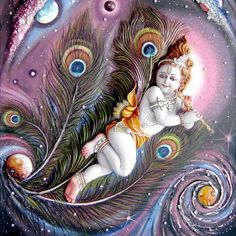Nectar of Instruction 4 – dadāti pratigṛhṇāti
ददाति प्रतिगृह्णाति गुह्यमाख्याति पृच्छति । भुङ्क्ते भोजयते चैव षड्विधं प्रीतिलक्षणम् ॥ ४ ॥ dadāti pratigṛhṇāti guhyam ākhyāti pṛcchati bhuṅkte bhojayate caiva ṣaḍ-vidhaṁ prīti-lakṣaṇam dadāti — gives charity; pratigṛhṇāti — accepts in return; … Read More




